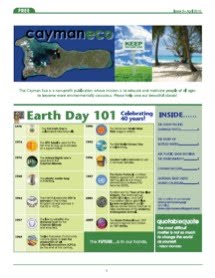October 16, 2014
The local Chamber of commerce is urging
its members to take its on-line survey about the proposed cruise berthing
facility in government before the web-based questionnaire closes at the end of
this month. The Cayman Islands Government is proposing to develop a cruise
berthing facility in the George Town harbour with two finger piers to
accommodate the next generation of mega cruise ships. The construction of this
new facility will require dredging of the sea floor, land reclamation
activities, construction of retaining walls, drilling and blasting.
The debate about constructing cruise
berthing facilities in George Town has raged for many years and the former UDP
government committed to develop the facility during the last administration but
the project was derailed as a result of a number of issues, but mostly because
of the government’s failure to follow due process in its efforts to find a
private sector partner to not only construct but also finance the project.
The issue has however remained
controversial and although the cruise tourism sector is extremely eager to see
the piers built not everyone in the tourism business is supportive and the
wider public is divided over the need for such a costly project. Even though
government will be seeking a partner to finance the project in the first instance,
the investment will be recoupled from the cruise ship passenger fees.
The PPM is committed to the project and
has already spent several million dollars on consultants, the strategic
business cases and the environmental impact assessment but the Chamber is
seeking a definitive position on the project from its more than 700 members.
“This survey has been developed to seek
your views on the proposed project and the likely potential impacts associated
with the construction and operational phases,” said Johann Moxam as he urged
people to participate in the survey and make their voice heard. “All
information provided will be kept confidential and will assist the Chamber
Council with determining the membership's collective view on this proposed
infrastructure project.”
See the survey here.













